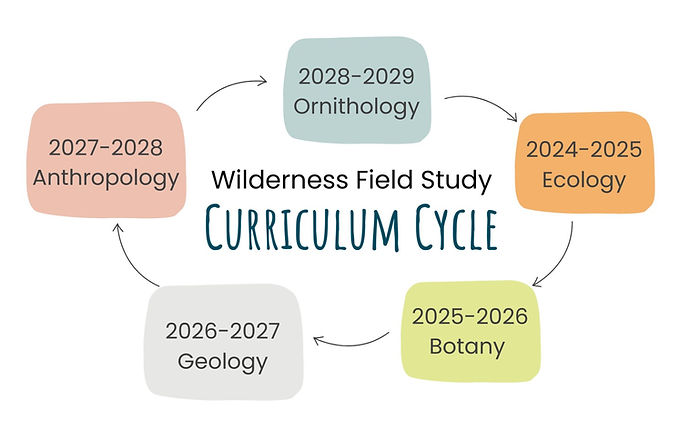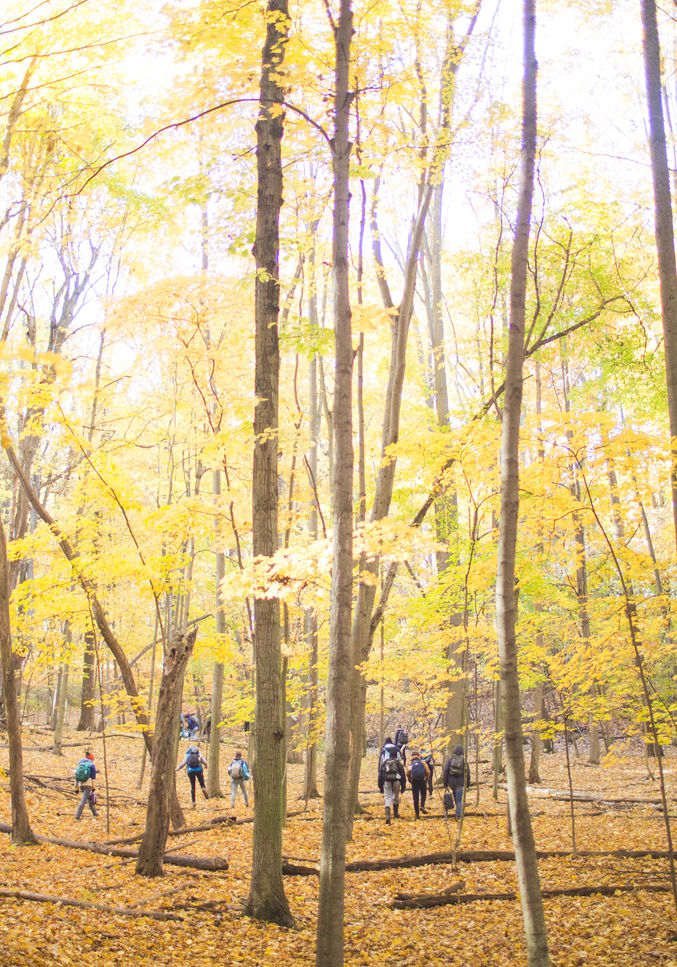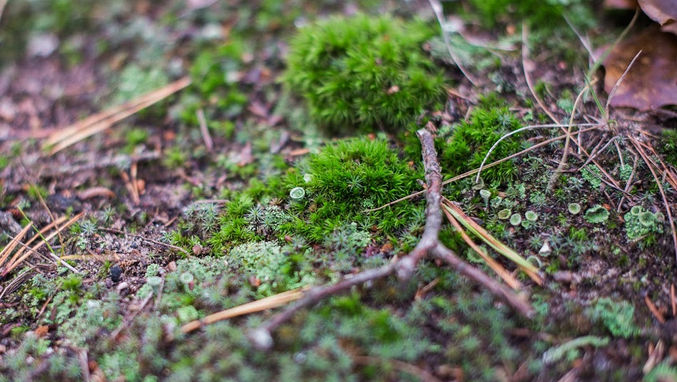
Oaks - Wilderness Field Study
This immersive field study invites high school students into a living relationship with the plant world, blending modern botanical science with ancestral, place-based herbal traditions. Learning happens through observation, exploration, and hands-on practice.
Students will use field guides, journals, and basic botanical tools to study plant anatomy, identification, and ecological roles. Alongside scientific inquiry, they’ll explore traditional herbal knowledge rooted in the land, learning how local plants have supported human health and culture, across generations. Ethical harvesting, reciprocal relationship-building, and seasonal awareness are woven throughout the curriculum.
Students are encouraged to ask questions, think critically, and solve problems creatively—developing both scientific literacy and intuitive understanding. Within a supportive community of peers, students are given space to explore their unique gifts and build confidence, emerging with a deeper sense of self and a lasting connection to the earth.

Wilderness Field Study 2025-2026
for students ages 14-18*
Courses are one day per week. Choose the day that works best for you.
Wednesdays 10:00am-2:00pm
Thursdays 10:00am-2:00pm
*Student age as of September 1, 2025

Wilderness Field Study 2025-2026
Ethnobotany Focus (2025-2026)
-
The Scientific Method and Observing in the Field
Begin with how to ask questions, make careful observations, and record what we notice in the wild. -
Edible and Medicinal Plants of Forest, Field, and Lake
Meet key local plant allies, observing them in their natural habitats and learning their traditional and contemporary uses. -
Plant Cells, Tissues, and Healing Compounds
Discover how plant structure supports healing, from aromatic oils to protective resins and nutritive roots. -
Herbal Preparation Methods: Teas, Infusions, Salves, and Tinctures
Learn hands-on techniques for drawing out a plant’s medicine, paired with safety and dosage awareness. -
Water, Light, and Photosynthesis in Medicinal Plant Growth
Explore how plants make their own energy, and how growing conditions affect their strength and vitality. -
Seed Germination, Gardening, and Herbal Cultivation
Apply growing knowledge by cultivating herbs from seed, observing what supports health and resilience. -
Soil Science, Fertility, and Supporting Plant Vitality
Dive underground to study what nourishes the plant body—and how healthy soil relates to herbal potency. -
Using Plant Fibers for Natural Arts: Basketry, Wood Carving, and Cordage
Learn to work with plant materials like bark, roots, and stems to create useful, beautiful items—deepening your relationship with the land through traditional craft. -
Ethical Wildcrafting and Sustainable Harvest Practices
Practice how to harvest mindfully, considering timing, quantity, ecosystem health, and reciprocal care. -
Life Cycles, Growth Patterns, and Seasonal Harvesting
Tune into seasonal rhythms to know when to harvest roots, leaves, flowers, and seeds for best use. -
Plant Taxonomy and Local Plant Identification
Use botanical keys and field guides to sharpen ID skills and avoid common lookalikes or toxic species. -
Cultural Ecology and the Human-Plant Relationship
Explore how various cultures (past and present) relate to plants as teachers, healers, and companions. -
DNA, Genetics, Variation, and Traditional Plant Breeding
Investigate plant inheritance, variation, and how humans have influenced plant traits over generations. -
Natives, Invasives, and Ecological Impacts of Herbal Harvest
Examine how plant origin and spread affect ecosystems, and what it means to harvest responsibly in changing landscapes. -
Creating a Homemade Herbal First Aid Kit
Interwoven throughout the year, we will craft a personalized first aid kit as we practice using knowledge, ethics, and skills developed throughout the course.

Calendar 2025-2026
Fall Session
Sep 8 - Nov 13
Winter Session
Jan 12 - Feb 12
Feb 16 - 19, weather make up days
Spring Session
Mar 2 - May 14
May 18 - 21, weather make up days

Optional Independent Study
High School Botany Credit
Students wishing to earn a high school Botany credit may opt into the Independent Study component alongside the Wilderness Field Study course. As the homeschool parent, you are responsible for awarding credit on your student’s transcript, while Discovery provides the structure and resources to support meaningful, standards-aligned learning.
Each week, teachers will share optional research-based assignments to deepen student understanding of the scientific and cultural dimensions of the plants they engage with in the field. Expect students to spend 1–3 hours weekly outside of class on reading, observation, journaling, and project work.
Outside Resources May Include
-
Peer-reviewed journal articles
-
Educational documentaries
-
Online lectures or interviews
-
Field guides and identification keys
-
Books on botany, ethnobotany, and herbalism
Student Portfolios Will Include
-
Home Made Herbal First Aid Kit Creating a Homemade Herbal First Aid Kit
-
A detailed nature journal with observations, sketches, and reflections
-
Experimental design, data collection, analysis, and conclusions
-
Photographs or documentation of hands-on work in the field
-
(Optional) Herbal preparations or plant fiber crafts relevant to their project theme
This independent study is ideal for motivated students who want to bridge field ecology, cultural plant knowledge, and scientific inquiry—earning credit while cultivating a deeper relationship with the land.
Long-Term Planning High School Credits?
Us too.
Each year, the Wilderness Field Study will have a new theme with a different independent study credit.


Wilderness Field Study FAQ's
Is partnership funding available for Wilderness Field Study? Yes! The High School Field Study Course follows our Wilderness School Model, and courses facilitate nature connection through art, music, and physical education/outdoor ed. The Ecology Credit is an Independent Study option to expand on the learning happening during Wilderness School.
Who will teach this class? Our AMAZING Mr. Dean and Ms. Amy will once again teaching this course. Dean is our resident entimologist with a background in botany and passion for wilderness survival skills. He brings energy and life everywhere he goes. You're going to love him! Amy is a native plant landscaper with a background as an arborist. She comes from a family of herbalists, and is an all-around plant and science lover. Her passion and enthusiasm for plants and everything nature pours out of her every word and action. She's a great person to learn alongside.
What is the class size? We've opened 20 student scientist spaces for the class, with two teachers.
For the High School Botany Credit, do we come up with our own work? Nope! Discovery will curate the resrouces for the Independent Study portion of the class. We will have a list of books and supplies needed for the course.
How will the class be graded? There are so many ways to assess learning besides written tests and book reports. Students will create a portfolio during the year, which will include photographs, nature journal entries, scientific data, art/music compositions, videos, and more. Instead of tests, students will demonstrate comprehension of the material through oral presentations and group discussion. We have found that this facilitates a deeper understanding of the subject material than any test ever could! Throughout the year, Independent Study students will check with teachers informally each week. We will also create formal meetings with the teacher to disucss your learning goals, experiments, and projects. For your high school transcript, you will need a grade. At the end of the year, you'll meet with the teacher to look over your portfolio and learning goals. Together you will decide the grade you've earned for your high school transcript.
Where can I find the course syllabus? This couse is new, and we're still working out the details. Chelsea, Discovery's Director, will be creating the syllabus with the support professionals in the field of ecology and teaching. Chelsea is a former high school Physics and Chemistry teacher, and was the chair of the science department when she taught public school- leading teachers in science curriculum development.
Which textbook will you use? We're still curating our Ecology Course book list. Ecology is the study of how living organisms interact with their environment. Instead of a single textbook, the spine of our curriculum will include living books that bring in diverse perspectives regarding how everything works together. We will also utilize documentaries, youtube videos, and journal articles, and our own scientific data as resources in this course.
Will this same course be taught next year? Discovery is on a five-year curriculum cycle. That means we're always engaging in new material. Wilderness Field Study is a new class that will change with the theme each year. So, next year the Independent Study will have a High School Botany credit. The following year Anthropolgy. We're looking at Geology and Biology as well as Dendrology and Ornithology in future years.
More Questions?

Wilderness Field Study
2025-2026 Annual Tuition
$1790
*additional 25 registration fee is due at time of enrollment.
We don’t want tuition to feel out of reach for any family, and we recognize that everyone can contribute unique offerings to our community. Reach out to create a customized plan that works for you.

























